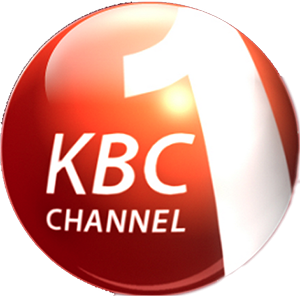Telecommunications in Kenya include radio, television, fixed and mobile telephones, and the Internet.

Communications in Liberia include the press, radio, television, fixed and mobile telephones, and the Internet.

Kenya Broadcasting Corporation (KBC) is the state-run media organisation of Kenya. It broadcasts in English and Swahili, as well as in most local languages of Kenya. The corporation started its life in 1928 when Kenya was a British colony. In 1964, when Kenya became an independent country, the corporation's name was changed to Voice of Kenya. In 1989, the Kenyan parliament reverted the corporation's name from Voice of Kenya to Kenya Broadcasting Corporation.

The media of South Africa has a large mass media sector and is one of Africa's major media centres. While South Africa's many broadcasters and publications reflect the diversity of the population as a whole, the most commonly used language is English. However, all ten other official languages are represented to some extent or another. Afrikaans is the second most commonly used language, especially in the publishing sector.
The Daily Nation is the highest circulation Kenyan independent newspaper with 170,000 copies.
The media of Mali includes print, radio, television, and the Internet.
The media of Libya consists of a broad range of newspapers, TV channels, radio stations, and websites mostly set up during or after the Libyan Civil War, which removed previously tight restrictions on freedom of the press and freedom of speech. By the summer of 2012, there were over 200 registered newspapers, over 20 TV channels, and 200 radio stations.

Media in Sierra Leone began when the first modern printing press in Africa arrived at the start of the 19th century. In the 1860s the country became a journalist hub for Africa with professional travelling to the country from across the continent. At the end of the 19th century the industry went into decline and when radio was introduced in the 1930s this became the primary communication media. Print media is not widely read in Sierra Leone, especially outside Freetown, partially due to the low levels of literacy in the country. In 2008 there were 15 daily newspapers in addition to those published weekly. Among newspaper readership young people are likely to read newspapers weekly and older people daily. The majority of newspapers are privately run and are often critical of the government.
As in many developing countries, radio reaches the widest audience in Haiti. Estimates vary, but more than 300 radio stations are believed to broadcast throughout the country. It's easy now to listen to all Haiti radio online on Haiti Media Live http://haitimedia.live Talk show programs serve as one of the few ways in which ordinary Haitians can speak out about politics and the government. A law passed in 1997 declares the airwaves to be the property of the government, but at least 133 unlicensed radio stations operate freely. In addition, there are 50 community-based stations throughout the country.
The media industry of Iraq includes print, radio, television, and online services. In fact, Iraq became the first Arab country to broadcast from a TV station, in 1954. As of 2005 about 80 radio stations and 25 television stations were broadcasting to Iraq in Arabic, Kurdish, Turkmen, and Neo-Aramaic.

Media in Burundi is controlled by the government.

Media in the Democratic Republic of the Congo are both nationally and internationally state owned and operated.
Media in Ivory Coast is controlled by the government. Audiovisual communications are regulated by the Conseil national de la communication audiovisuelle (CNCA), an administrative arm of the national government.
The Media of South Sudan is underdeveloped compared to many other countries, including fellow East African states like Kenya, Tanzania, and Uganda. Poor transportation infrastructure and entrenched poverty in the country inhibit both the circulation of newspapers, particularly in states located far from the capital of Juba, and the ability of media outlets to maintain regular coverage of the entire country.
Vincent Makori is the anchor of Africa 54, Voice of America’s English television live news magazine show that broadcasts daily from Washington D.C.. The program brings information about Africa, the United States, and the world to viewers across Africa.
Media of Tanzania includes print, radio, television, and the Internet. The "Tanzania Communications Regulatory Act" of 2003 created the Tanzania Communications Regulatory Authority, which oversees broadcast licensing. The Media Council of Tanzania began in 1995.
The Media of the Czech Republic refers to mass communication methods through broadcasting, publishing, and the Internet.
Kanze Dena formally knowns as Kellen Beatrice Kanze Dena is a Swahili Kenyan journalist who is the current Spokesperson, Executive Office of the President, Republic of Kenya and Head of President's Strategic Communication Unit (PSCU). She was previously a news anchor who specialized in current affairs, political interviews and entertainment. Kanze Dena who has previously worked as a news anchor for other major networks including Kenya Broadcasting Corporation television network and Citizen TV resigned from Citizen TV in June 2018, after being appointed as the Deputy State House Spokesperson and Deputy Head, PSCU, a role she held for a six weeks before ascending to her current role of Spokesperson in the Executive Office of the President.
Ben Okello Oluoch, also known as Ben Oluoch Okello and B.O.O.,, was a Kenyan radio presenter and politician who represented Migori County in the Senate of Kenya from 2017 to 2018.







